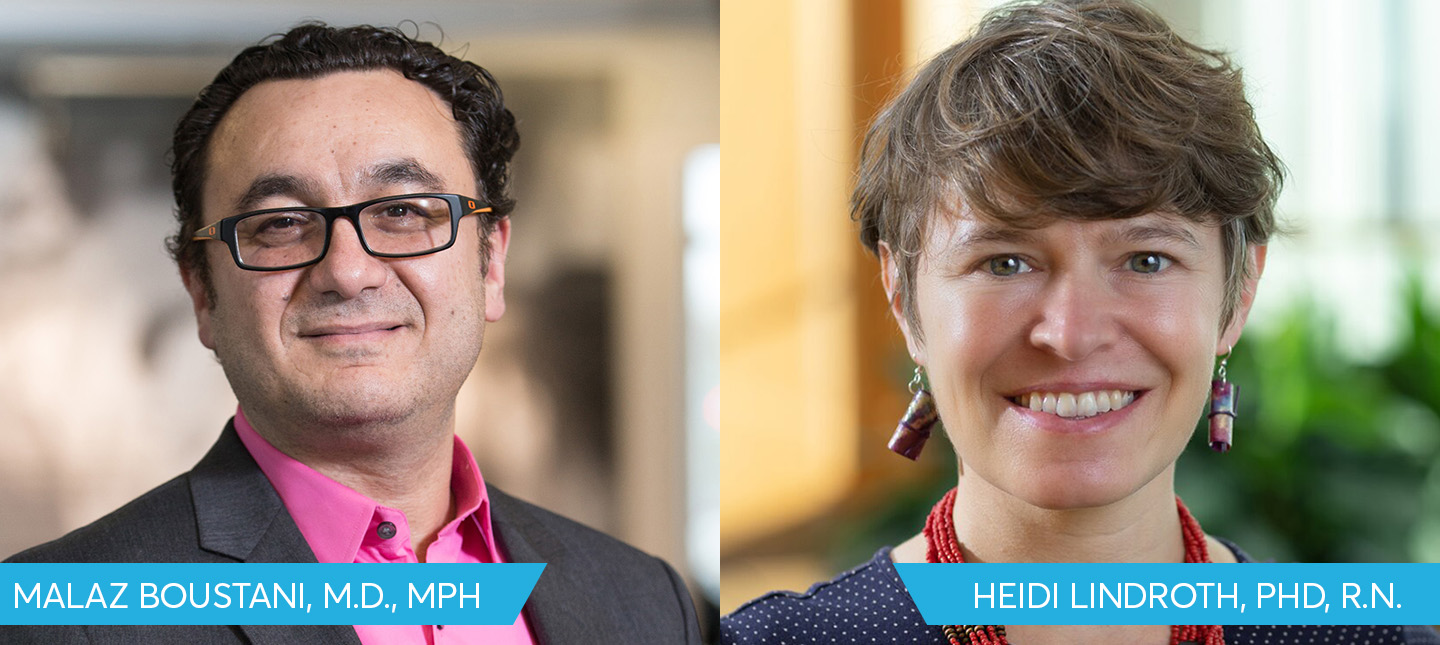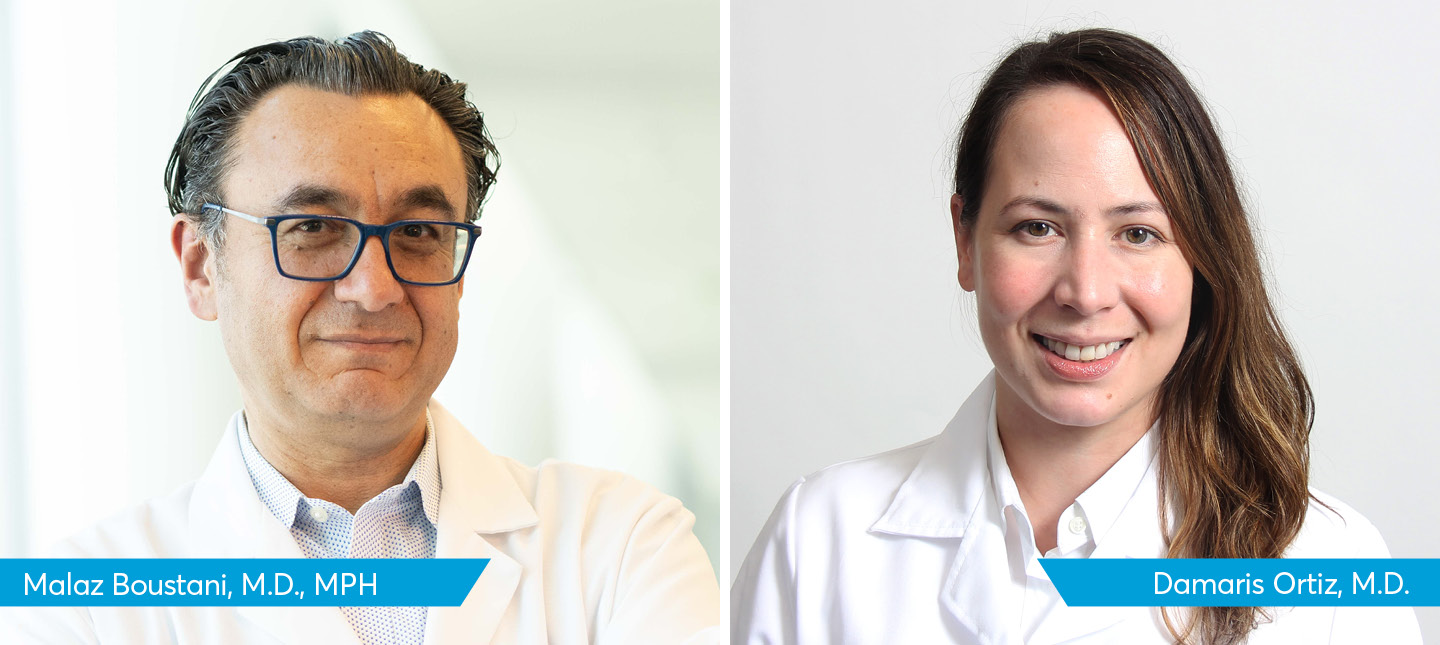Updated and invigorated mentorship model to grow scientific community’s social capital across generations
Mentorship has existed throughout history. Socrates mentored Plato, who, in turn, mentored Aristotle. Humphry Davy, the chemist who was the first to isolate potassium, sodium and at least five other elements, mentored Michael Faraday, inventor of the world’s first electric generator. Sigmund Freud mentored Carl Jung. Science teacher Elizabeth Mommaerts mentored Sally Ride. Maya Angelou mentored Oprah Winfrey. The list of knowledge bearers and knowledge seekers who have connected meaningfully goes on and on.
According to Regenstrief Institute Research Scientist and Indiana University School of Medicine Professor Malaz Boustani, M.D., MPH, it’s time to update and invigorate mentorship relationships in the sciences to produce better outcomes. He has coined the new model agile mentorship that benefits both mentee and mentor as it grows the social capital of the scientific community across generations.
“Agile mentorship is an evolving, adaptive and personalized process of information exchange with a widely important goal of supporting an individual to excel in their potential and to become as good and ideally better than the mentor. It highlights personalization and constant optimization to ensure that the mentorship relationship is as good as possible across time and across context,” said Dr. Boustani. “We call the process agile mentorship, but it’s really the same thing, with a bit of embellishment, that’s been developed at Regenstrief Institute by Clem McDonald, M.D., who mentored William (Bill) Tierney, M.D., who mentored Christopher (Chris) Callahan, M.D., who mentored me. And I have passed it along to my mentees, some of whom, like Babar Khan, M.D., M.S., are now mentoring other scientists.
“To advance science, to fulfill the legacy of Sam Regenstrief to transform the healthcare system, you need amazing scientists who will be able to change the way we deliver medicine, deliver healthcare and improve access to that care. This requires training and mentoring by individuals who have high levels of skills and competency and the ability and interest to pay it forward and recognize that the most important element contributing to the success of junior faculty or trainee is to have a mentor who provides a psychosocial safety net for mentee success. And, of course, there needs to be willingness of the prospective mentee to reach out to find the right mentor – not a boss or a coach but a true mentor putting themselves forward to benefit another.”
Agile mentorship requires both the mentee and the mentor to prioritize the relationship, making themselves available in spite of many competing career demands, including the ongoing search for financial support for research and constantly looming research deadlines.
In a paper published in the peer-reviewed ATS Scholar, “Agile Mentorship: A Longitudinal Exploratory Analysis,” Heidi Lindroth, PhD, R.N., Dr. Boustani and co-authors provide an inside perspective of Dr. Lindroth’s mentee experience with agile mentorship over the five years she and Dr. Boustani engaged in the process, starting when Dr. Lindroth was a post-doctoral fellow and researcher at Regenstrief Institute. With Dr. Boustani’s mentorship, Dr. Lindroth led the study design, interpretation of data, and preparation of the manuscript, supported by a National Institute of Health’s National Institute on Aging Career Development Award (K23AG076662).
The authors pinpointed four themes that are pillars of agile mentoring:
- identification of shortcomings
- adaptive perspective
- managing relationships
- personal growth
- awareness
- continual reflection
- toolkit development
“Over the past five years working with Dr. Boustani, I have developed new skills and grown as a scientist because of his mentorship using the agile mentorship model. Our weekly meetings set the stage for success and influenced my career path, including my NIH career development award and my successful track record of publications. Our weekly huddle has provided the needed time and space to develop trust and psychological safety, which was essential to exploring, identifying and addressing my individualized needs and building reliable processes for managing relationships, communication and personal growth. Over time, I developed a practice of continual reflection that has sustained my growth. I am so thankful that I can pay this experience forward by mentoring future scientists and agile change agents,” said Dr. Lindroth, now a Mayo Clinic Division of Nursing Research senior associate consultant and Regenstrief Institute affiliated scientist.
Dr. Lindroth’s mentor, Dr. Boustani, was himself a mentee for five years and has been a mentor for 16 years to researchers, clinicians, healthcare system leaders and to an individual who recently launched a health-focused start-up company. Currently, he is mentoring seven junior scientists. He notes, “agile mentorship is a growth and a leadership process that is adaptable, that is personalized with the goal of building a social relationship and exchanging knowledge and skills across time and space as well as across generations. It’s a scalable and sustainable framework that is adaptable to various career development processes within the sciences and beyond.”
Authors of the ATS Scholar paper and their affiliations
Heidi Lindroth1,2,3; Caroline Shumaker3,4,5; Britain Taylor3,6; Zayn Boustani3,4,5 and Malaz Boustani2,3.
1Division of Nursing Research, Department of Nursing, Mayo Clinic, Rochester, MN
2Center for Aging Research, Regenstrief Institute, Indianapolis, IN
3Center for Health Innovation and Implementation Science, School of Medicine, Indiana University, Indianapolis, IN
4Department of Biology, College of Arts and Sciences, Indiana University, Bloomington, IN
5Department of Psychological and Brain Sciences, College of Arts and Sciences, Indiana University, Bloomington, IN
6The Luddy School of Informatics, Computing, and Engineering, Indiana University, Bloomington, IN
About Malaz Boustani, M.D., MPH
In addition to his role as a research scientist at Regenstrief Institute, Malaz Boustani, M.D., MPH, is the founding director of the Center for Health Innovation and Implementation Science. He is the Richard M. Fairbanks Professor of Aging Research at Indiana University School of Medicine. Dr. Boustani is also director of care innovation at Eskenazi Health.
About Regenstrief Institute
Founded in 1969 in Indianapolis, the Regenstrief Institute is a local, national and global leader dedicated to a world where better information empowers people to end disease and realize true health. A key research partner to Indiana University, Regenstrief and its research scientists are responsible for a growing number of major healthcare innovations and studies. Examples range from the development of global health information technology standards that enable the use and interoperability of electronic health records to improving patient-physician communications, to creating models of care that inform clinical practice and improve the lives of patients around the globe.
Sam Regenstrief, a nationally successful entrepreneur from Connersville, Indiana, founded the institute with the goal of making healthcare more efficient and accessible for everyone. His vision continues to guide the institute’s research mission.
About IU School of Medicine
IU School of Medicine is the largest medical school in the U.S. and is annually ranked among the top medical schools in the nation by U.S. News & World Report. The school offers high-quality medical education, access to leading medical research and rich campus life in nine Indiana cities, including rural and urban locations consistently recognized for livability.










